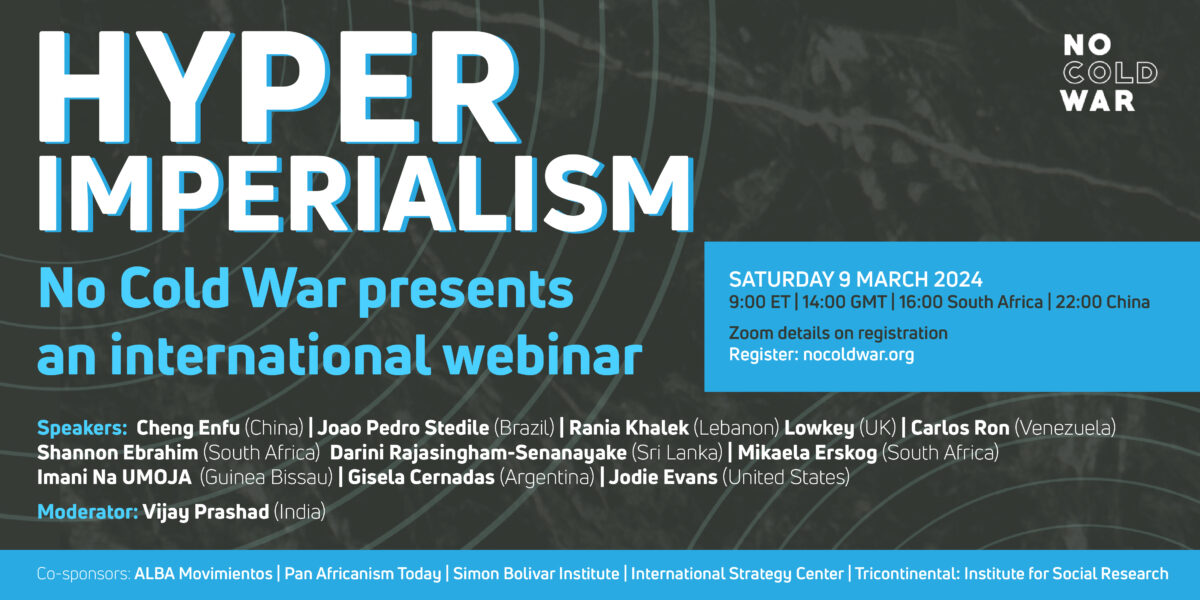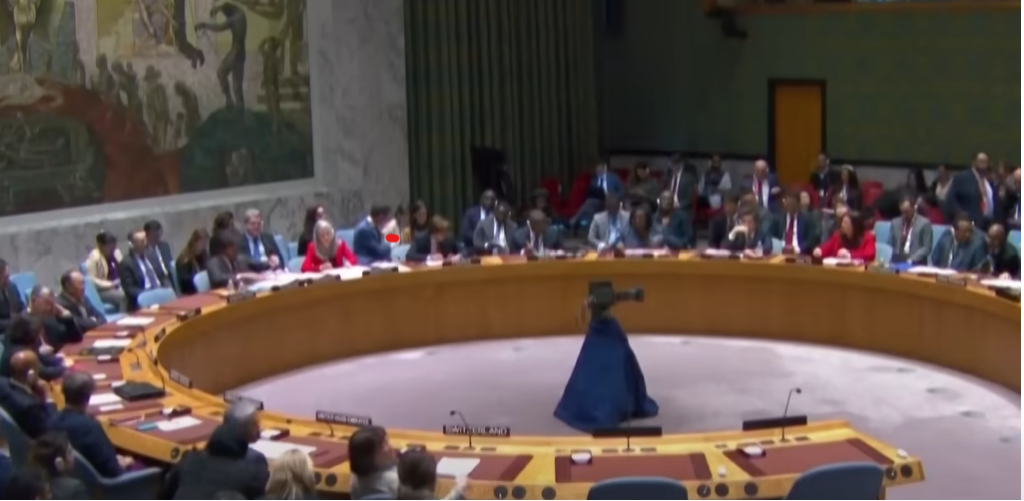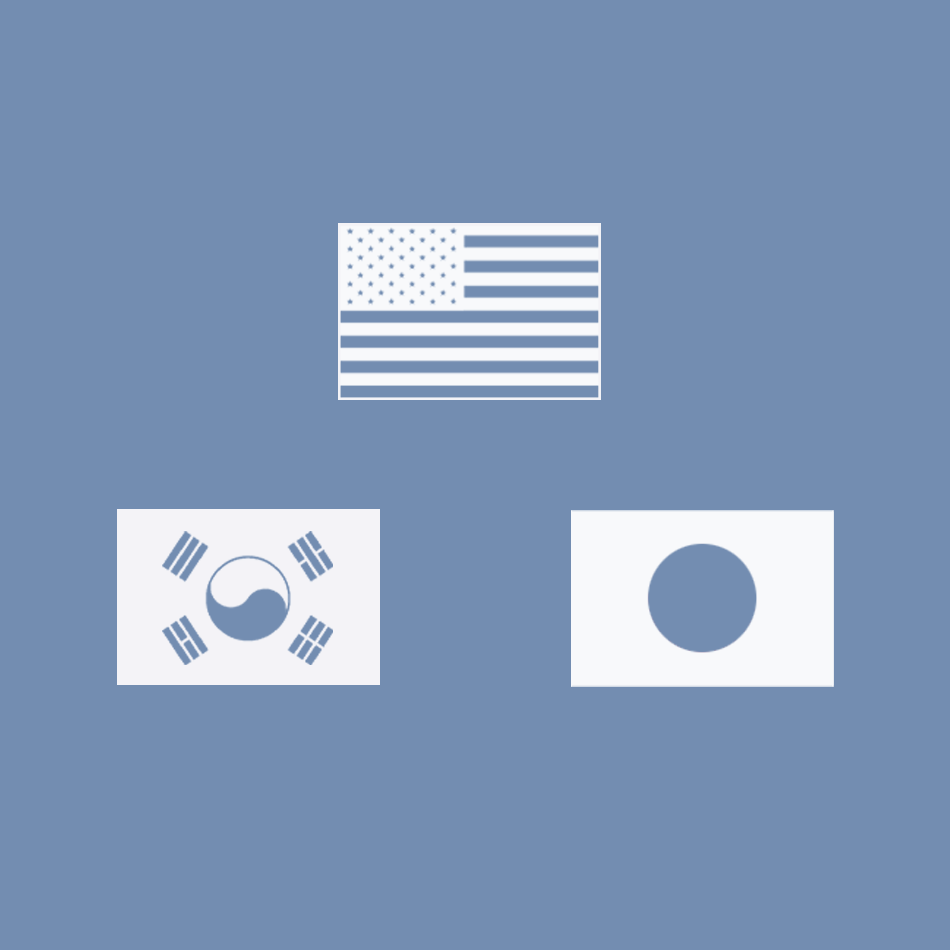The summit held between US President Joe Biden, Japanese Prime Minister Fumio Kishida, and Philippines President Bongbong Marcos in Washington on 11 April saw a deliberate attempt by the US to spread political instability – with a potential for military conflict – into East Asia. This follows on from US “freedom of navigation” military exercises in the South China Sea – wrongly termed because no country in the region has in fact prevented, or threatened to prevent, navigation in the South China Sea.
Alongside those military exercises the US publicly admits to China states that in 2023 there were over 1,000 US overflights in the South China Sea while US carrier strike groups and amphibious groups entered it eight times in 2023, with at least 11 nuclear-powered attack submarines and two nuclear-powered ballistic missile submarines in and near the sea. As it is around 12,000 kilometres from the United States, it’s difficult to imagine the South China Sea as a “defensive” region for the US.
Around the summit, the US, Japan and the Philippines announced plans to conduct trilateral military exercises in the Pacific region in the coming year with President Biden declaring: “United States defence commitments to Japan and to the Philippines are iron clad.” The South China Sea is over 3,000 kilometres from Japan.
The militaristic character of what is being proposed was confirmed by the summit being held in parallel with the announcement that the AUKUS military alliance of the US, UK, and Australia is seeking to incorporate Japan into its development of military technology: “Recognising Japan’s strengths and its close bilateral defence partnerships with all three countries, we are considering cooperation with Japan on… advanced capability projects.”
Simultaneously Prime Minister Anthony Albanese announced that Australia had: “stepped up our defence relationship with Japan in agreements I’ve signed with Prime Minister Kishida, including access by Japan for Australian bases.”
Again, geography immediately reveals that these actions have nothing to do with defence, and are clearly offensive in nature – the South China Sea is 4,000 kilometres from Australia.
Taken together, these actions brazenly encourage Japan to abandon its post-World War II pacifist constitution and embark on large-scale re-armament – a long term goal of Japanese militarist circles.
The damaging consequences of similar US policies in other parts of the world are clear at present and show the danger that these actions pose for Asia.
US expansion of the military alliance of the North Atlantic Treaty Organisation (NATO) into Eastern Europe, as was warned against by the majority of US experts on the region, has now destabilised Europe. In Ukraine, it has led to the largest war on that continent since 1945. The suffering of the Ukrainian people has reached extreme proportions, while the US/NATO is now facing military setbacks. Opposition to this US policy has been rising both in the US and in Europe.
In West Asia (the so-called “Middle East”), US backing of Israel’s most extreme government under Prime Minister Netanyahu – with its enhanced policies of apartheid, repression, and further use of settlements for ethnic cleansing – was the spark that first ignited the armed conflict on 7 October and, now, Israel’s prolonged genocidal massacres against Gaza. Israel would not have dared to carry out the 1 April attack on Iran’s consulate in Damascus, which creates the threat of a wider conflict in the region, without an understanding that the US would support it even if it broke international laws and took such offensive actions. These policies by Israel have led to immense human suffering, almost universal international revulsion, and the isolation of Israel and the US. The horrors of these Israeli actions have now created widespread opposition to Israel’s policy even within the US itself.
These conflicts in Europe and West Asia are a direct result of US military policies and the decades of Cold War tensions and dynamics. In sharp contrast, East Asia in recent decades has demonstrated that peaceful development is possible. Overcoming the consequences of the two greatest military conflicts of the Cold War, the Korean and Vietnam wars, East Asia has enjoyed more than 40 years free of war and is the world’s fastest growing economic area with the most rapid advances of any region in its population’s living standards. This has been secured through economic cooperation, acceptance of the various political systems in the region, and relative avoidance of regional military alliances – in particular, the absence of an East Asian equivalent of the European NATO alliance.
The US attempt to introduce and expand its military bloc and these provocative actions, therefore, threatens to introduce the disorder and chaos that has engulfed Europe and West Asia into East Asia.
Instead of drawing the correct lessons from the situation in Europe and West Asia, and adopting a path of peaceful development, the US is doubling down on its military policies and attempting to spread instability into a new region.
It is vital for international peace and the people of East Asia that all forces concentrate on demanding that the US reverse its course and abandon its attempt to spread international disorder using Asia. In particular, at present, this means opposition to AUKUS, to any expansion of AUKUS, and to the planned US-Japan-Philippines military actions in the South China Sea.







